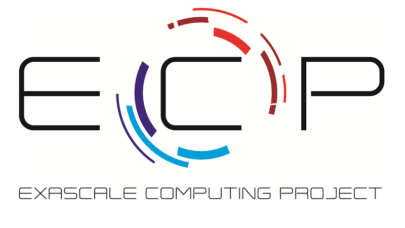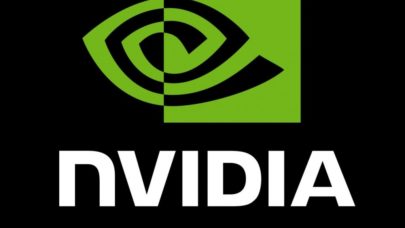
ECP Leads the Way to Cross-Platform Tested and Verified Compilers for HPC and Exascale Architectures
June 9, 2021
The Exascale Computing Project (ECP) is working to combine two key technologies, LLVM and continuous integration (CI), to ensure that current and future compile Read more…

DARPA, NSF Seek Real-Time ML Processor
March 18, 2019
A new U.S. research initiative seeks to develop a processor capable of real-time learning while operating with the “efficiency of the human brain.” The National Science Foundation (NSF) and the Defense Advanced Research Projects Agency jointly announced a “Real Time Machine Learning” project on March 15 soliciting industry proposals for “foundational breakthroughs” in hardware required to “build systems that respond and adapt in real time.” Read more…

HPC Compiler Company PathScale Seeks Life Raft
March 23, 2017
HPCwire has learned that HPC compiler company PathScale has fallen on difficult times and is asking the community for help or actively seeking a buyer for its a Read more…

PGI Accelerator Compilers Add OpenACC Support for x86 Multicore CPUs
October 29, 2015
NVIDIA today announced availability of its newest PGI Accelerator Fortran, C and C++ compilers (version 15.10) now with support for OpenACC directives-based par Read more…

OpenACC Broadens Appeal with GCC Compiler Support
November 14, 2013
As the non-profit standards group behind the push for wider adoption via easier use of accelerators, OpenACC has quite a big job ahead. Although analysts agree Read more…

NVIDIA Takes PGI Under Wing
July 29, 2013
Moments ago, NVIDIA announced its acquisition of the Portland Group (PGI) which has provided compiler and tools for the HPC-oriented C and Fortran markets. According to the company's Sumit Gupta, this will allow them to further build their software portfolio and to push the adoption of GPUs through OpenACC in particular. NVIDIA and PGI will... Read more…

HPC Programming in the Age of Multicore: One Man’s View
January 14, 2013
At this June's International Supercomputing Conference (ISC'13) in Leipzig, Germany, Gerhard Wellein will be delivering a keynote entitled, Fooling the Masses with Performance Results: Old Classics & Some New Ideas. HPCwire caught up with Wellein and asked him to preview some of the themes of his upcoming talk and expound on his philosophy of programming for performance in the multicore era. Read more…

The Heterogeneous Programming Jungle
March 19, 2012
There are several approaches being developed to program heterogeneous systems, but none of them have proven to successfully address the real goal. This article will discuss a range of potentially interesting heterogeneous systems for high performance computing, why programming them is hard, and why developing a high level programming model is even harder. Read more…

- Click Here for More Headlines

Whitepaper
Transforming Industrial and Automotive Manufacturing
In this era, expansion in digital infrastructure capacity is inevitable. Parallel to this, climate change consciousness is also rising, making sustainability a mandatory part of the organization’s functioning. As computing workloads such as AI and HPC continue to surge, so does the energy consumption, posing environmental woes. IT departments within organizations have a crucial role in combating this challenge. They can significantly drive sustainable practices by influencing newer technologies and process adoption that aid in mitigating the effects of climate change.
While buying more sustainable IT solutions is an option, partnering with IT solutions providers, such and Lenovo and Intel, who are committed to sustainability and aiding customers in executing sustainability strategies is likely to be more impactful.
Learn how Lenovo and Intel, through their partnership, are strongly positioned to address this need with their innovations driving energy efficiency and environmental stewardship.
Download Now
Sponsored by Lenovo
Whitepaper
How Direct Liquid Cooling Improves Data Center Energy Efficiency
Data centers are experiencing increasing power consumption, space constraints and cooling demands due to the unprecedented computing power required by today’s chips and servers. HVAC cooling systems consume approximately 40% of a data center’s electricity. These systems traditionally use air conditioning, air handling and fans to cool the data center facility and IT equipment, ultimately resulting in high energy consumption and high carbon emissions. Data centers are moving to direct liquid cooled (DLC) systems to improve cooling efficiency thus lowering their PUE, operating expenses (OPEX) and carbon footprint.
This paper describes how CoolIT Systems (CoolIT) meets the need for improved energy efficiency in data centers and includes case studies that show how CoolIT’s DLC solutions improve energy efficiency, increase rack density, lower OPEX, and enable sustainability programs. CoolIT is the global market and innovation leader in scalable DLC solutions for the world’s most demanding computing environments. CoolIT’s end-to-end solutions meet the rising demand in cooling and the rising demand for energy efficiency.
Download Now
Sponsored by CoolIT
Advanced Scale Career Development & Workforce Enhancement Center
Featured Advanced Scale Jobs:
HPCwire Resource Library
HPCwire Product Showcase
© 2024 HPCwire. All Rights Reserved. A Tabor Communications Publication
HPCwire is a registered trademark of Tabor Communications, Inc. Use of this site is governed by our Terms of Use and Privacy Policy.
Reproduction in whole or in part in any form or medium without express written permission of Tabor Communications, Inc. is prohibited.
























